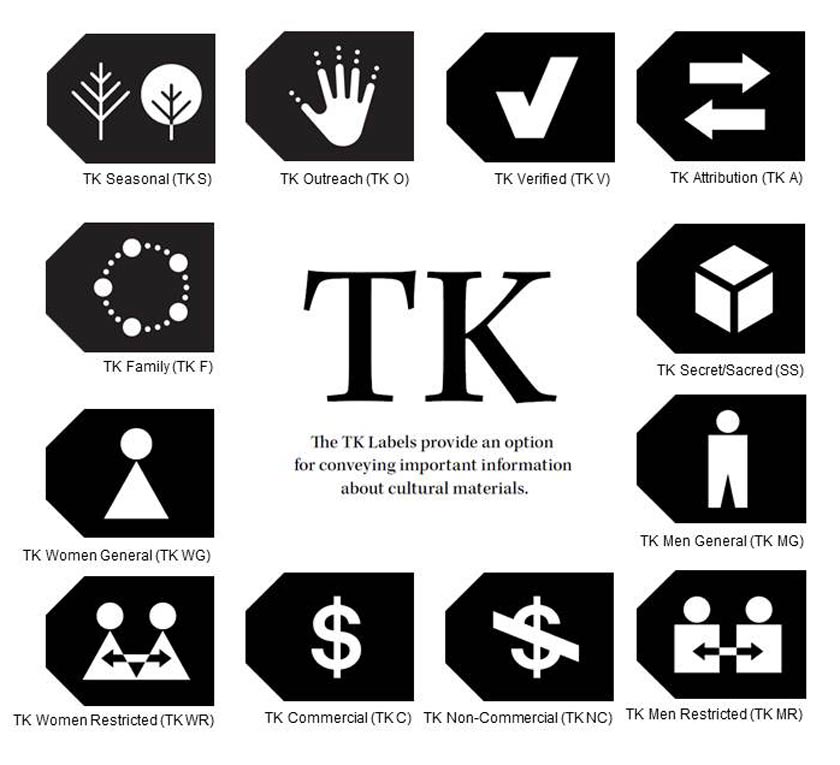Taking a prompt from Grace Reid this Truth and Reconciliation week, one of the additions to the mobile and open education ecosystem for the betterment of Indigenous People has been the establishment of TK (Traditional Knowledge) Labels.
Like Creative Commons licensing, TK Labels have been developed to express local and specific conditions for sharing, engaging and acknowledging traditional knowledge.

TK Labels have been developed through partnership and discussions within Indigenous communities across multiple countries, and are intended to be customised by each community through the Local Contexts Hub.
These “Labels support the inclusion of local protocols for access and use to cultural heritage that is digitally circulating outside community contexts, identifying and clarifying community-specific rules and responsibilities regarding access and future use of traditional knowledge. This includes sacred and/or ceremonial material, material that has gender restrictions, seasonal conditions of use and/or materials specifically designed for outreach purposes.” (Local Contexts website)
As both a documentarian and a media instructor following proper knowledge and usage rules, along with properly crediting sources is an important part of mobile education for me with my students, and is one that I hope educators get better at as a whole, as there is far too much unlawful use of media online and far too little acknowledgement of the source of that media (including from educators themselves).
Thanks for sharing Erica. What a cool concept. Do you think there are too many? Sometimes when it comes to crediting sources, especially Creative Commons, people don’t realize there are different rules within designations. With that said, I really like the approach.
Hi Sam, I think there is a lot of nuance to traditional knowledge, making it necessary for a greater number of labels than in the Creative Commons. And ultimately, I think the people for whose work these labels will apply are the best to make the decision of what is best for their needs.